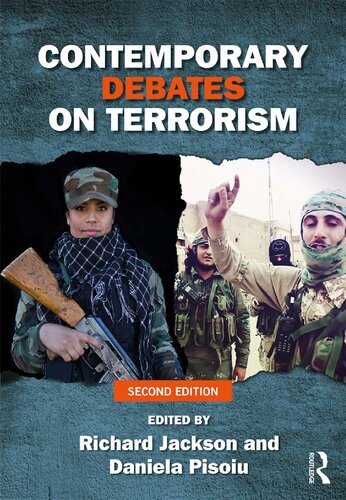

Most ebook files are in PDF format, so you can easily read them using various software such as Foxit Reader or directly on the Google Chrome browser.
Some ebook files are released by publishers in other formats such as .awz, .mobi, .epub, .fb2, etc. You may need to install specific software to read these formats on mobile/PC, such as Calibre.
Please read the tutorial at this link: https://ebookbell.com/faq
We offer FREE conversion to the popular formats you request; however, this may take some time. Therefore, right after payment, please email us, and we will try to provide the service as quickly as possible.
For some exceptional file formats or broken links (if any), please refrain from opening any disputes. Instead, email us first, and we will try to assist within a maximum of 6 hours.
EbookBell Team

4.8
34 reviewsIn recent years, the terrorism studies field has grown in quantity and quality, with a growing number of scholars rooted in various professional disciplines beginning to debate the complex dynamics underlying this category of violence. Within the broader field, there are a number of identifiable controversies and questions which divide scholarly opinion and generate opposing arguments. These relate to theoretical issues, such as the definition of terrorism and state terrorism, substantive issues like the threat posed by al Qaeda/ISIL and the utility of different responses to terrorism, different pathways leading people to engage in terrorist tactics and ethical issues such as the use of drones. This new edition brings together in one place many of the field’s leading scholars to debate the key issues relating to a set of 16 important controversies and questions. The format of the volume involves a leading scholar taking a particular position on the controversy, followed by an opposing or alternative viewpoint written by another scholar. In addition to the pedagogic value of allowing students to read opposing arguments in one place, the volume will also be important for providing an overview of the state of the field and its key lines of debate. This book will be essential reading for students of terrorism studies and political violence, critical terrorism studies, security studies and IR in general.